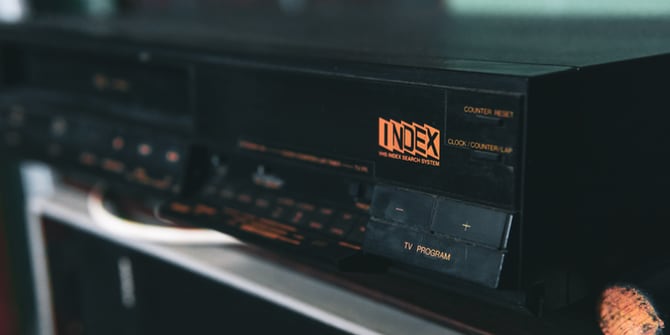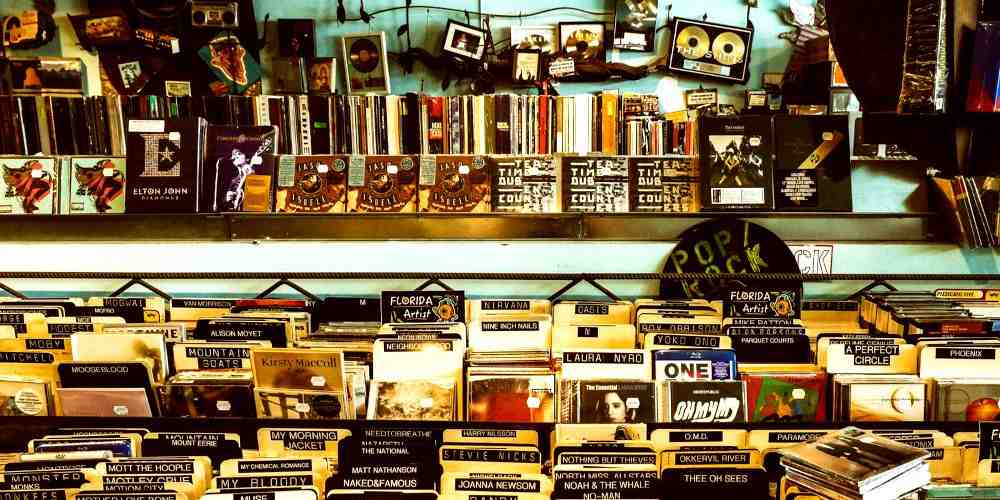First introduced in the early 1980s, CDs quickly surpassed vinyl records and cassette tapes to become the main way that we listened to music.
Starting in the late 1990s and early 2000s, however, the popularity of CDs started to wane as digital music distribution began its upward climb.
Now though, we've seen vinyl come back to the point where they're selling almost as much as CDs, and may even outsell them soon. Cool as it is, vinyl is expensive to produce, which means some artists have turned to cassettes, which was unthinkable not that long ago.
Is the CD the next format to reappear in the mainstream spotlight, or is the digital physical disc set to remain a thing of the past?
Are CDs Still Selling?
In 2019, roughly 46.5 million CDs were shipped in the United States. That might sound like a lot, but that's actually the lowest total in decades.
By comparison, over 900 million CDs shipped in the United States in the year 2000. So yes, CDs still sell, but not nearly as much as they used to.
As you've probably guessed, the vast majority of people listen to music through streaming sales or digital purchases, but even those purchases are falling off quickly.
When people do buy physical albums, it's much more likely to be vinyl, mostly because vinyl carries a certain level of cool that CDs lack.
The act of putting a record on a turntable is tactile in a way that CDs aren't. When you play a CD, you're simply playing a digital file, just as you would on your phone, it just so happens to be playing from a disc instead.
Why Buy CDs Instead of Vinyl?

There are some advantages that CDs have over vinyl. The first is that a CD will largely sound the same no matter what player you play it though.
We're just talking playback here, not the preamp, amplifier, speakers, or any other part of the signal chain. Yes, certain players have better digital to analog converters, but unless a converter is really bad, you probably won't notice the difference.
Vinyl, on the other hand, can have issues at playback. If the tone arm isn't properly balanced, you may deal with skips. If the needle is worn or damaged, the record won't sound as good as it could. Then there's the issue of wear to the actual record.
No matter how little it may be, playing a vinyl record can be a destructive process, meaning the record wears don't slightly every time you play it. CDs on the other hand will either work or they won't. You'll hear the same sound at the same quality every time.
The Downsides of CDs
Of course, there's a caveat to the digital nature of CDs. Like digital broadcast TV, it either works or it doesn't.
While a damaged vinyl record will still play audio, a CD that is scratched beyond repair simply won't play anything, since the laser in the player can't read the information from the disc.
Then there's the size. While some may consider the small size a plus -- it's what puts the "compact" in "compact disc" after all -- not everyone does.
With vinyl records, you get big, gorgeous cover art. With CDs, you get a small square with details that are often hard to make out.
CDs can also be susceptible to bit rot, where the reflective material flakes off over time. So while they don't wear down during playback, you may return to a cherished CD to find it no longer works.
In the End, Format Doesn't Matter
Whether CDs come back or not, it really doesn't matter.
The reality is that the vast majority of people will still continue to listen through streaming services, and that doesn't seem as if it will change anytime soon. If you're looking to buy physical recordings, you're already an outlier.
That said, there are plenty of reasons why you should have a physical music collection. It doesn't matter what the format is, just find one you like and stick with it.
